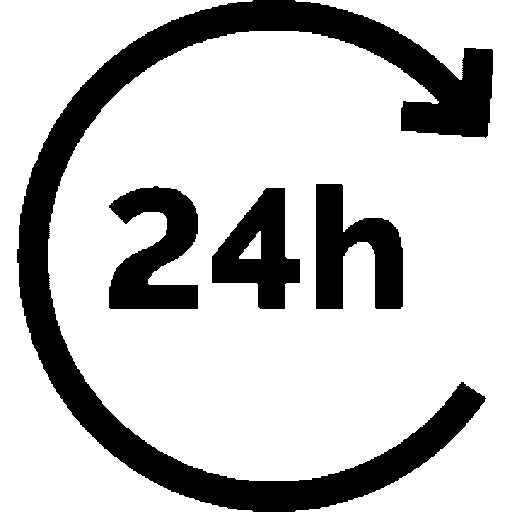What is CBD / THC weed? Simplifying the Complex
Delivery order weed👈 Telegram
CBD (Cannabidiol) is one of over a hundred natural compounds found in the Cannabis sativa plant. Unlike its “famous” cousin—THC (tetrahydrocannabinol)—CBD is not psychoactive. Simply put, it does not cause a “high,” a feeling of “intoxication,” or altered consciousness. This makes it safe and legal in many countries, including Russia, provided the THC content is less than 0.1%.
Important: A legal CBD product has nothing to do with drugs. It is derived from industrial hemp, legal varieties specifically cultivated for this purpose.
Potential Health Benefits of CBD: What Does the Research Say?
The effect of cannabidiol on the body is related to its influence on the endocannabinoid system (ECS), which regulates sleep, mood, pain perception, immune response, and appetite. Here are the key areas where CBD shows the most potential:
- Relief of Chronic Pain and Inflammation
Research indicates that CBD can effectively reduce inflammation and act on receptors responsible for pain perception. Many people use CBD oil or topical products (creams, balms) as a natural alternative to alleviate joint, muscle pain, and arthritis. - Fighting Anxiety and Stress
This is one of the most popular uses. CBD for stress relief works by influencing serotonin receptors (the “happiness hormone”) in the brain. Research and countless testimonials suggest it can help reduce symptoms of social anxiety, generalized anxiety disorder, and help combat stress-induced insomnia. - Improving Sleep Quality
If you wake up feeling tired or have trouble falling asleep, CBD for sleep may be a solution. Without being addictive like some sleep aids, it helps relax the nervous system, calm “racing” thoughts, and normalize the sleep cycle, promoting deeper, more restorative rest. - Supporting Skin Health
Thanks to its powerful anti-inflammatory and antioxidant properties, CBD products in the form of creams and serums help fight acne, eczema, and premature skin aging.
How to Choose Quality CBD? A Beginner’s Guide
To get the maximum benefit from CBD and avoid disappointment, it’s important to choose a reliable manufacturer. Here’s what to look for when you plan to buy CBD:
- Type of Extract:
- Full Spectrum: Contains the full spectrum of the plant’s cannabinoids, including trace amounts of THC (<0.3% or <0.1% depending on the region). The “entourage effect” enhances the benefits of each component.
- Broad Spectrum: Contains all cannabinoids but without THC. A good choice for those who want to avoid even trace amounts.
- Isolate: Pure CBD 99%. Has no taste or smell. Suitable for precise dosing.
- Hemp Source: Ensure the hemp is grown organically, without pesticides and heavy metals.
- Third-Party Lab Tests: This is the most important point! A reputable manufacturer always provides a Certificate of Analysis (COA) from an independent laboratory. It verifies the potency (CBD concentration), purity, and absence of contaminants.
Conclusion
CBD is not a magic pill but a promising natural supplement that can support your body in the conditions of modern life. By approaching its choice consciously, starting with low doses, and consulting a doctor if you have chronic diseases, you can safely discover all its benefits for improving your quality of life.
Ready to try? Explore our range of quality CBD products, all independently tested, and find the format that suits you best.
Reasoning: The Fundamental Difference Between CBD and THC Cannabis
While CBD and THC are both cannabinoids from the Cannabis sativa plant, they are derived from different varieties and have profoundly different effects due to their chemical structure and interaction with the human body.
The core difference lies in their interaction with the CB1 receptor in the brain, which is part of the endocannabinoid system.
- Psychoactivity (The “High”):
- THC has a molecular structure that allows it to bind directly and tightly to the CB1 receptors in the brain. This binding is what triggers the well-known psychoactive effects: euphoria, altered senses, changed perception of time, and impaired coordination. This is the defining characteristic of “marijuana” or “THC cannabis.”
- CBD, on the other hand, has a different molecular structure. It does not bind directly to CB1 receptors. In fact, it can even block or weaken THC’s ability to bind to these receptors, effectively reducing its psychoactive effects. CBD will not get you high.
- Botanical Source:
- THC Cannabis (Marijuana): Cultivated to have high concentrations of THC (often 15-30%). These plants are typically bred to enhance their psychoactive properties and specific aromas (terpenes).
- CBD Cannabis (Hemp): By legal definition (in the US, EU, and many other countries), this is industrial hemp. It is defined as Cannabis sativa containing less than 0.3% THC (0.2% in some parts of Europe, 0.1% in Russia). These plants are cultivated specifically for their high CBD content and low THC content, making them non-psychoactive. They are used for CBD extraction, as well as for making textiles, paper, and biofuel.
- Legal Status:
if you want to find original THC products there are possible options- THC Cannabis: Its legality varies greatly around the world. It is still classified as an illegal narcotic in many countries, though some have legalized it for medical and/or recreational use.
- CBD Cannabis (Hemp-Derived): Thanks to the 2018 US Farm Bill and similar legislation in other countries, hemp-derived CBD (with <0.3% THC) is legal in much of the world. Its legal status is far clearer and more widely accepted than that of THC.
Frequently Asked Questions
1. Is cannabis legal in this region?
Cannabis laws vary by location and are subject to change. We recommend checking current local regulations and always complying with applicable laws.
2. How does the delivery process work?
Our delivery process is designed for privacy and convenience. Contact details and procedures are provided through secure channels.
3. What payment methods are accepted?
Payment methods vary by location and service provider. Contact your local representative for available payment options.
4. Is the service discreet?
Professional discretion is our priority. All services are conducted with respect for privacy and confidentiality.

Leave a Reply